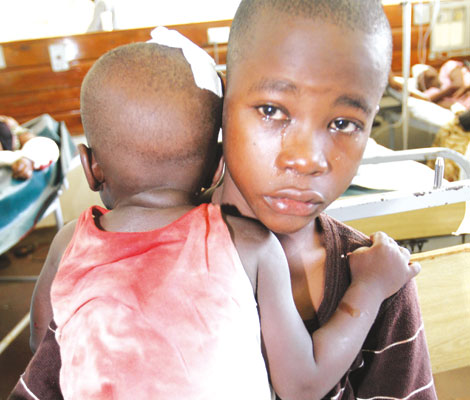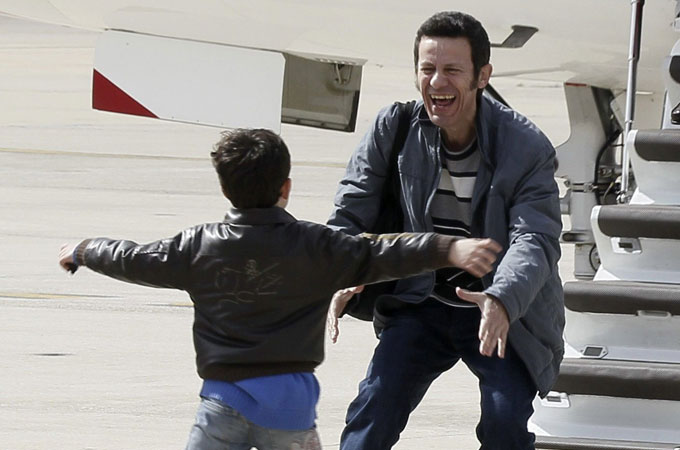By: Danielle L. Gwozdz
Impunity Watch News Reporter, Africa
NAIROBI, Kenya – A bullet lodged in the brain of an infant boy during an attack on a church near Kenya’s coastal city of Mombasa has been removed following an operation, a hospital spokesman says.

The 18-month old boy survived a raid attack that left six people dead. The infant was shielded by his mother who was shot and the bullet passed through her and into her son’s head. This act saved her son’s life.
No group has admitted to the raid that occurred on March 23rd.
The bullet was removed during a three-hour operation at the Kenyetta National Hospital in the capital, Nairobi.
“The baby is fully awake and he is back to his old state,” chief neurosurgeon Mwangi Gichuru said.
Kenyan police say the attack on the church could be an “act of terrorism.”
At least two gunmen burst into the church and started shooting indiscriminately.
Blood-soaked Bibles and overturned chairs law strewn across the church’s floor after the shooting.
The shooters escaped the scene before authorities arrived. The investigation is still continuing.
Kenyan officials said on Tuesday that they have arrested more than 650 people in an ethnic Somali part of Nairobi.
In a statement, the Interior Cabinet Secretary said a thorough security operation has been launched aimed at arresting the perpetrators of the Monday attack.
The Secretary described the attack as “barbaric” and an “act of cowardice” against innocent and peace-loving Kenyans.
The Somali al-Qaeda group al-Shabab has carried out several attacks in Kenya since 2011, when Kenya sent troops into Somalia to battle it.
On Monday, six people were killed in explosions in the Eastleigh suburb of Nairobi, which has the largest Somali population. No group has claimed responsibility for the bombing.
Late Monday, Nairobi police chief Benson Kibui assured Kenyans they are safe and that the attackers would be found.
“We are here to ensure that you and me are secure, so there is no need to panic. The government is on top of issues investigating all this and terrorism. But whoever is doing this or whoever is collaborating with whatever is going on, we will nab him,” Kibui said.
For more information, please visit:
BBC News – Kenyan church raid: Bullet removed from boy’s brain – 1 April 2014
Face 2 Face Africa – Kenya’s church raid: Bullet removed from boy’s brain – 1 April 2014
Panorama – Kenyan church raid: Bullet removed from boy’s brain – 1 April 2014
Nigerian Tribune – Kenya’s church raid: Bullet removed from boy’s brain •Police arrest 650 after bomb attack – 2 April 2014
News.nom.co – Church attack: Bullet removed from Kenyan boy’s brain – 1 April 2013



